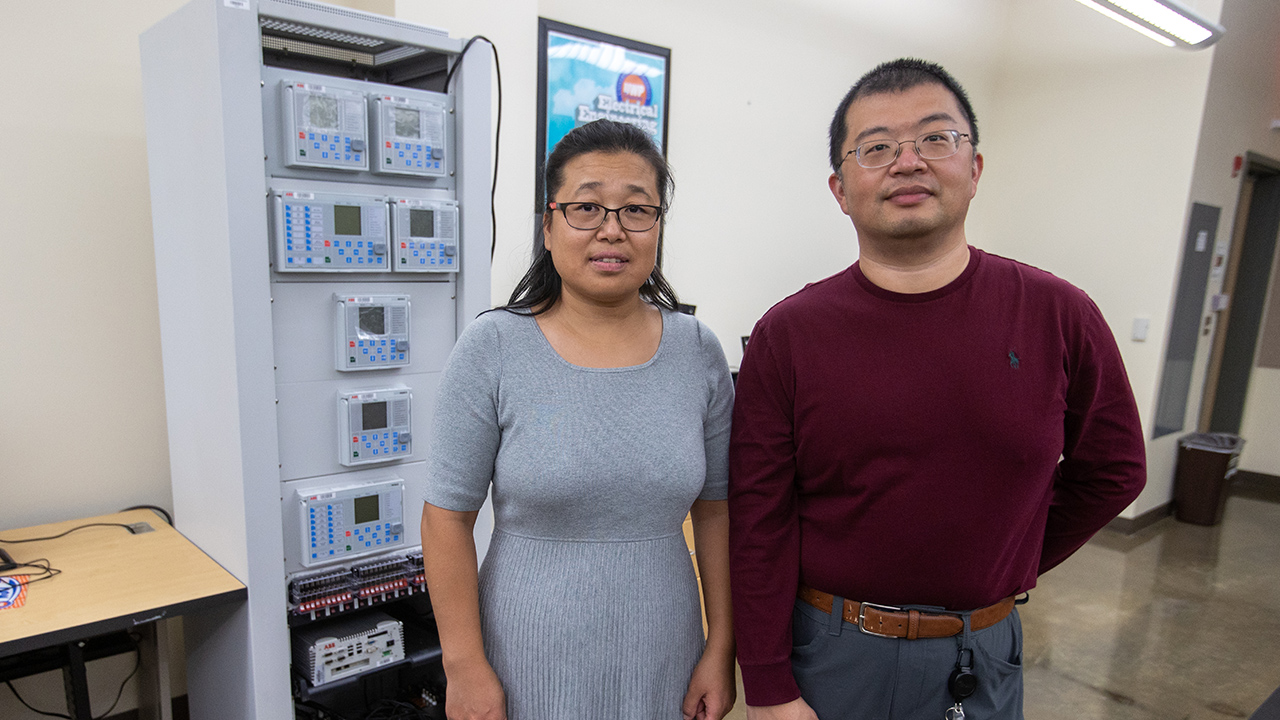
A group of faculty and student researchers at the University of Wisconsin-Platteville are working to contribute solutions to the increasing threat of cyberattacks on critical infrastructure. With the help of the UW System Ignite Grant Program and several industry partners, including ABB Inc., UW-Platteville will soon be home to a smart microgrid cybersecurity testbed.
Microgrids typically serve a defined geographic area – as small as a single building or campus or as large as a small town. They can operate while connected to the traditional power grid, or independently, and they can employ fossil fuel generators or renewable energy sources, such as solar power or wind. Rather than a simple source-switching control, modern communication technology is enabling a new generation of smart grids, which targets the overall benefits of load balancing, pricing, consumer integration and various scenario-automation.
The rise of smart technology in grids, however, comes with the increased risk of cyber-attacks, said Dr. Xiaoguang Ma, assistant professor of electrical and computer engineering at UW-Platteville.
“It’s not just the computer that makes the system smart, but the information that makes it smart,” said Ma. “This information comes from the communication network. You need different kinds of sensors, strategies and algorithms to control the smart grid. However, with these communications comes the threat of various cybersecurity problems.”
Ma, in collaboration with Dr. Yanwei Wu, associate professor of computer science and software engineering; Dr. Fang Yang, associate professor of electrical and computer engineering; and students from several disciplines are building a prototype of a smart microgrid testbed, which will enable research and development of smart microgrid and cybersecurity technologies. Students from more than a dozen courses across several programs will be able to work with the testbed – a hands-on opportunity that is rare among undergraduates and one that will develop skills that are increasingly in demand.
“More people are now required to understand the communication and cybersecurity areas; they are in really high demand,” said Ma. “We’ve also talked to our advisory board, and many of them said they wished that these skills were taught to students.”
The smart microgrid project will integrate the latest technologies and industrial products with the support of ABB Inc., an industry leader in smart grid solutions, through equipment donation, software donation, consulting and training assistance. The testbed will serve as an example for local industry partners.
“It can also be customized as a digital twin,” said Ma, who explained that a part of the microgrid testbed can duplicate a company’s implementation and offer cybersecurity validation services.
“On one hand, companies want to know and understand the threats in their network and put some security measurements in place,” said Ma. “But, on the other hand, they don’t want to touch it because the aftermath of any modification could be unaffordable. We can make a sandbox for these companies – a testbed that tries to mimic as close as possible their real setup. Then we’ll try cybersecurity intrusion detections and ways to hack it and patch it, all in the sandbox environment.”
The project team of faculty and students kicked off the project this summer by researching state-of-the-art technologies for smart microgrid cybersecurity with renewable energy sources. This will be followed by a period of collecting relevant information, before beginning the design of the smart microgrid system and the eventual creation of the prototype, which is slated to be finished in August 2023.
“Our research will be good for local business and good for students,” said Ma. “Also, we can promote this to the community to help them better understand the microgrid and cybersecurity.”
This research was supported by WiSys and University of Wisconsin System applied research funding (Ignite Grant for Applied Research). The views expressed herein are those of the authors and are not necessarily those of WiSys or the UW System.